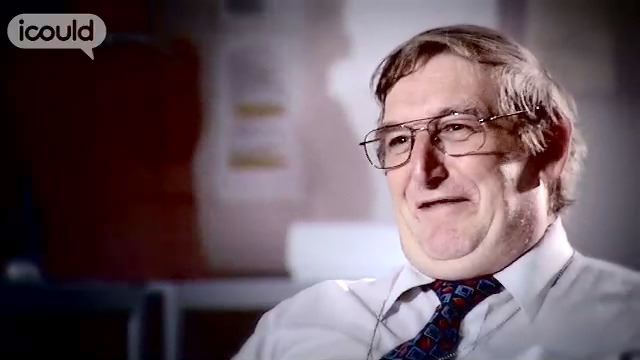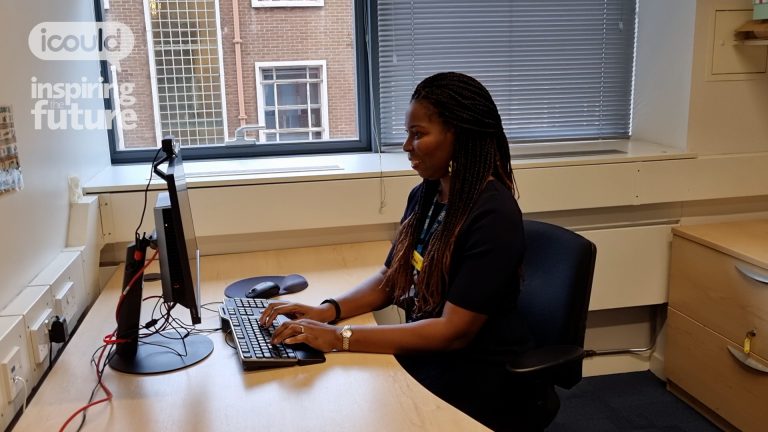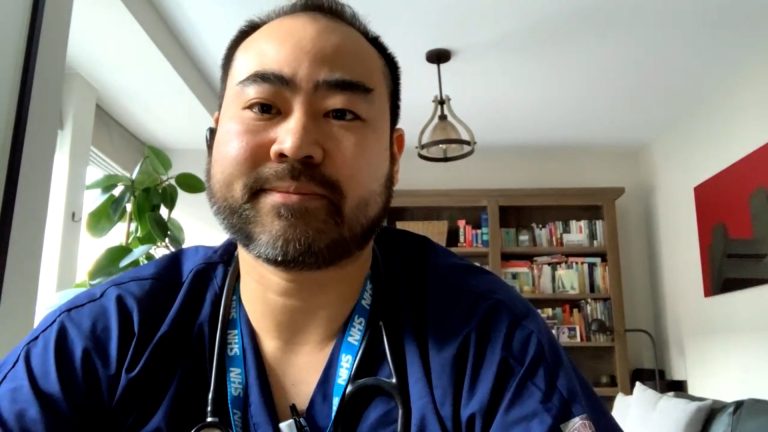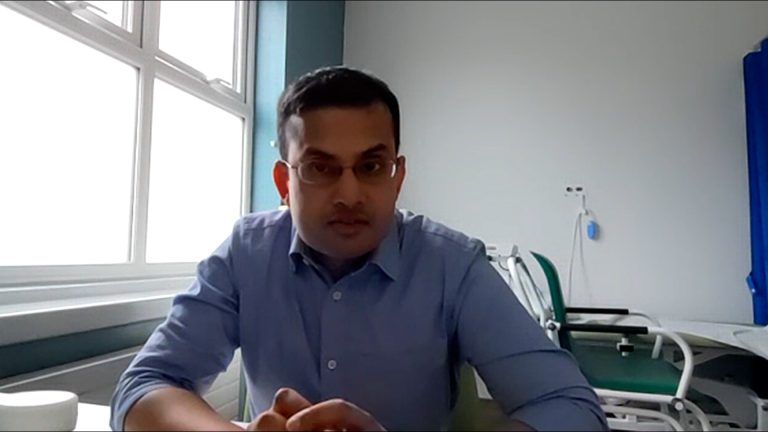Prosthetic Technician
Addenbrookes Hospital
Colin G
00:00:01 I’m Colin G, I’m a prosthetic orthotic technician. I make false limbs – so that’s legs, arms. Then you’ve got the orthotics, which is abrasion and correction of limbs from simple things like flat feet to spinal jackets. I don’t shut off, I’m always thinking of work.
00:01:45 In actual fact I was away at boarding school – which I thoroughly enjoyed – and I didn’t want to leave school. And it was a funny story then ‘cause I went to the Head Master and he said – it’s a waste of my time, your time, especially your father’s money – the answer’s no. (LAUGHS) I’d no ideas what I wanted to do when I left school. A lot of the lads went into the Army. I did six weeks in Germany with the cadets. I enjoyed my six weeks in Germany but I thought no, don’t fancy this as a life! (LAUGHS) So I left school, and then I followed me father into – because he was an electrician and I thought I’d do that. And I worked at Southend Greyhound Track, that was great, I was there for about six or seven months, and then I just went into retail. The first big recession hit, many years ago, and I was looking around for a job and I had a friend who was doing prosthetics, he says come and work for us. And I says well I says I know nothing about prosthetics, he says nor does anybody else, he says you just come in and that was it. I specialised as an upper limb technician, and I did that for ten years in Roehampton. And I was training to be the Manager, but then I developed cancer, and that threw that all out. It wasn’t – it wasn’t going to beat me. I did not have a day – I had three days off work for shingles, I worked through the whole lot. Because it was just my way of getting over it, and I just said God, you know, you ain’t going to beat me. You ain’t going to beat me. But no, as I say, it happens, you just get on with it, that’s it, you know. Just that’s the thing, there’s nothing you can do about it, don’t worry about it. When I finished with the cancer I had to do a quick career change to lower limbs, so I trained in lower limbs, and then job come up here at Cambridge, for an upper limb technician, so I’ve come here, and I also now do a lot of orthotics. But my specialist is – I’m an upper limb technician. There is a big career structure within the NHS, within the prosthetics itself is a small part of it, but again there’s a big career structure before we actually get to assemble the bits.
00:02:24 The five years I trained were very very hard. There was a fellow called Ernie Lane and he always said to me – and I think I’ll always remember this – if you work hard now boy you’ll never work hard again. And I’ve never found any job difficult since, and I always bear that in mind. I think I can honestly say I look back now and yeah, twenty-five years hobby – five years hard work, twenty-five years hobby. Believe it or not there’s a new electronic hand coming up, which is all moving, all singing, all dancing. To work with that, you know, that would be the ultimate, because when I started electronics were just coming into the industry. But to actually to be given a chance to work on that you know would be absolutely – see me from beginning to the end.
00:03:09 As a prosthetic technician generally, you don’t see patients. As – myself as an upper limb technician, I see patients and I specialise – they come and see me direct, so I run my own clinic. As to dealing with patients, I’m pretty up front. I think if you’re straight with them, and say look you know, yeah, you’ve lost a limb but talk to me, we can come up with things, we’ll sit down and we’ll write on a little bit of paper and then we’ll try it and everything else, so – so again that’s part of the job that I enjoy, that one to one with patients. To me its great, you know, they get on with their lives and that’s it, you know, and in fact as long as I can help them do that I’m – you know, it makes me happy, you know. Trouble is you see I could be too good and then you seen they don’t come – you know they don’t break down and I ain’t got a job. But I don’t think that’ll happen. (LAUGHS)
00:04:01 ENDS
Colin G is a Prosthetic Technician, who loves his job. He was given excellent advice by a colleague, “The five years I trained were very hard. There was a fellow called Ernie Lane and he always said to me – and I think I’ll always remember this – if you work hard now boy you’ll never work hard again.”






